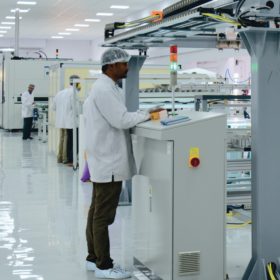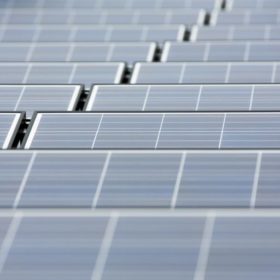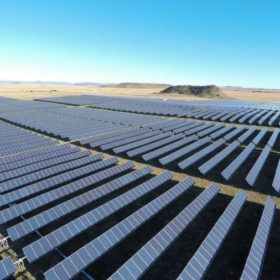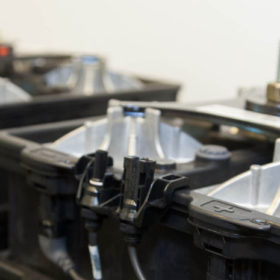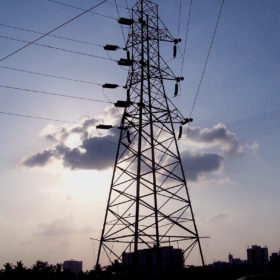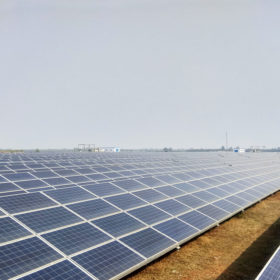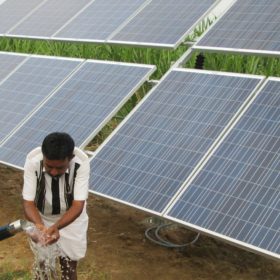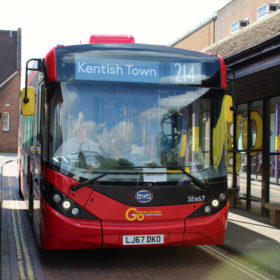12 GW ‘new solar’ proposal: Industry reaction
“While there are ample solar PV module manufacturers in India to meet the government demands, the proposal would provide impetus to existing and new players to venture into cell production”—according to Sunil Rathi, director, Waaree Energies.
Government prioritizes Indian products in plan for 12 GW of new solar
The Cabinet Committee on Economic Affairs has approved a plan for projects to be enabled by public bodies in the hope that avoiding competitive procurement will enable it to circumvent WTO rules related to import parity.
Gujarat to buy solar power from salt farmers
Gujarat Electricity Regulatory Commission (GERC) has allowed Gujarat Urja Vikas Nigam Ltd (GUVNL) to procure 2.7 MW solar power generated by salt pan workers of Self-Employed Women Association (SEWA) during off-season.
NTPC eyes 1 GW solar projects in Africa
The state-owned power generator will follow the bidding route for development of solar projects in African countries that are members of the International Solar Alliance.
IESA calls for swift launch of National Energy Storage Mission
“We urge the government to take swift action in launching the National Energy Storage Mission in order to support the development of an R&D and manufacturing ecosystem for energy storage and electric vehicles,” said Rahul Walawalkar, president of the India Energy Storage Alliance.
14 MW solar+42 MW storage project for Jammu & Kashmir approved with VGF support
The president of India has sanctioned setting up of 14 MW grid-connected solar PV projects with aggregate battery storage capacity of 42 MWh for Jammu & Kashmir under Prime Minister Development Package (PMDP)-2015 . The projects would be set up during 2019-20 and 2020-21, and include 7 MW solar projects with battery storage of 21 MWh each in Leh and Kargil at different locations. These would be implemented in developer mode, at a fixed tariff of Rs 2 per unit, with viability gap funding support.
Tamil Nadu floats new solar policy to generate 9 GW by 2022
Tamil Nadu government has unveiled a new solar energy policy 2019 that aims at generating 9 GW for the state by 2022. The policy would be applicable to projects, programmes and installations relating to both solar PV and thermal energy, including utility as well as consumer categories.
Budget 2019: Just 1 per cent hike in solar sector
The interim budget has provided Rs 3,004.90 crore for solar projects development (including both grid-interactive and off-grid and decentralized) in financial year 2019-20, which is just 1 per cent increase over the estimated expenditure of Rs 2,969 crore this fiscal, according to reports.
Comments sought on BIS standards for solar pumping systems
The Ministry of New & Renewable Energy (MNRE) has invited comments of all the stakeholders on the solar PV water pumping system specifications set by the Bureau of Indian Standards (BIS).
Tamil Nadu to get 2,000 electric buses with German aid
For the purchase, the government of Tamil Nadu is seeking a loan from German state-owned development bank KfW, at an interest rate of 2%, according to reports.
